My trip to Rye, Sussex
My first memories of Rye was when I went there with my granddad, he used to live there and his family went back 200 years. At the time we lived In Fleet Hants. We would catch the train to London, then change trains to Ashford, when we got to Ashford we would get the local train to Rye, it had three carriages with no collider, if you wanted the toilet, hard luck.
I was seven the first time I stayed with my aunt there.
Rye harbour was about two miles from Rye.
It had a single track road, with a few parsing places.
Rye Harbour was the place nobody wanted to go to, mainly because there was nothing there.
Two pubs, a shop and a post office, the sea was about a mile and a half away.
There was a railway line that lead to a jetty with ship would unload wood, but that was before the war, now it was just a line where they kept old coal trucks.
Some times if you were lucky, you could catch the trucks being shunted down the line from Rye.
The guard would let you ride in the guards van, it was better than walking
There were only two buses a day, one in the morning and one in the afternoon
There were just open fields all the way down to the sea shore.
Loads of old fishing boats, most just wrecks and a big Navel Motor Torpedo Boat, all the bit had been taken off, but to us kids it was fantastic to play on.
There was a big tower built to stop the French from way back, we used to climb down the inside of the moat brick walls and play in the grounds.
One time some people came and let us all in, from up on the roof you could see for miles, they had an anti-aircraft gun mounted on the top in the war.
There were what was left of flack guns scatted around, the gun had been taken off, but we use to sit on the seat and make out we were firing it.
To most people Rye Harbour was a dean end hole, but to all us kids it was a fantastic play Ground.
But now all the open fields are fenced of as a nature reserve
The old concrete road, that the Italians built, has been covered in tarmac, before you could see P.O.W. 1943 in the concrete, but long gone now
The post office has gone and so has one of the pubs, the other one is not much better, the locals use go and have pint and a god old sing song.
Now they don’t want locals just drinking, they want you to have a meal.
The old fishing boats are no more, it has become a yachting harbour now
There is a holiday centaur with chalets and the old tower is now owned by them, all fenced off and covered in ivy with no way in
The town of Rye is the same, just most of the shops have changed and half of the town is now holiday lets, own by people from London, as is the same with Rye harbour.
My granddad and his three bother use to have their own fishing boat and were life boat men
On the early morning around 5a.m. on the 15th November 1928 a distressed call came in a ship was in trouble and taking on water in the terrible storm.
The men of Rye harbour answered the call and ran one and a half mile to the Life boat station, at the time there was no road, so they had to run across fields.
My granddad and his brothers was with them, but by the time they got there, the boat was maned, so they helped to launch the boat, to get it in the water it had to be dragged across the beach, the up to their waists in water, before the boat was in the water.
Twice it was pushed by on to the beach, but the three time it go away.
In the meantime the ship that was in trouble sent a message say there were ok now, but too late to stop the life boat
Between 10 am and 11 the boat was seen upside down in the waves.
None of the men survived, it wiped out half the village
This is Rye Town Today
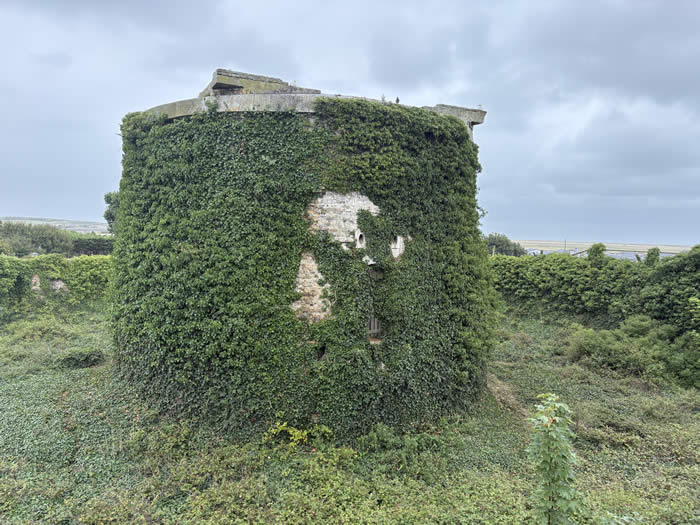
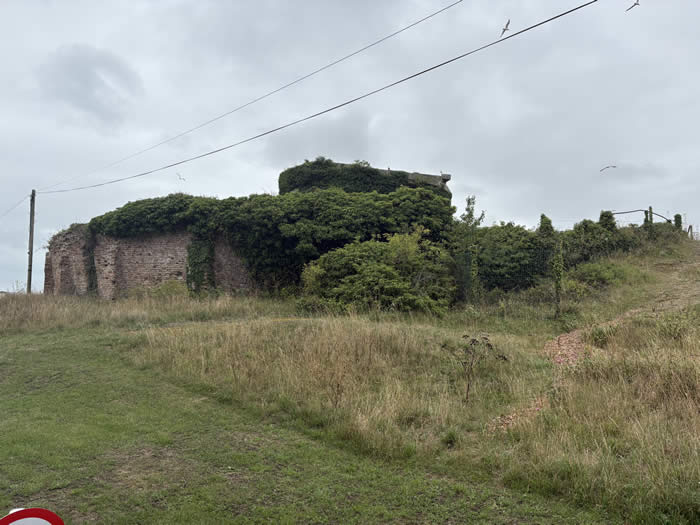
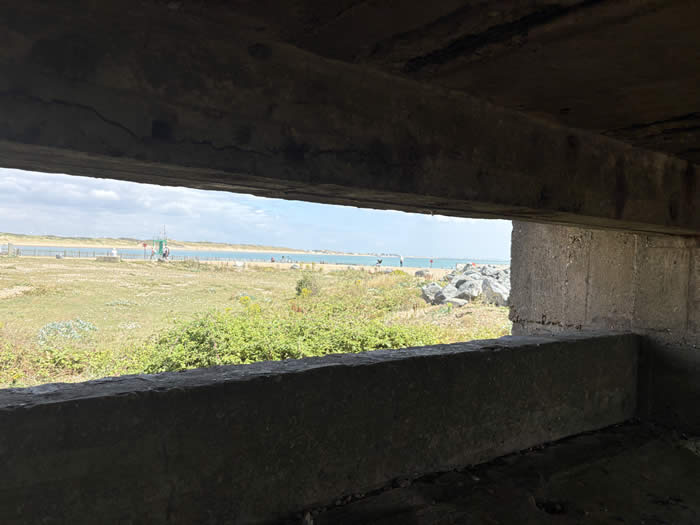
The Robus Family
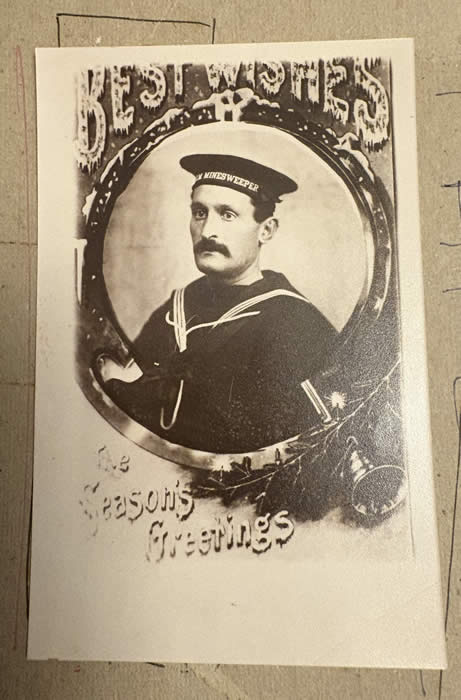
My Granddad Arthur Robu born 1880
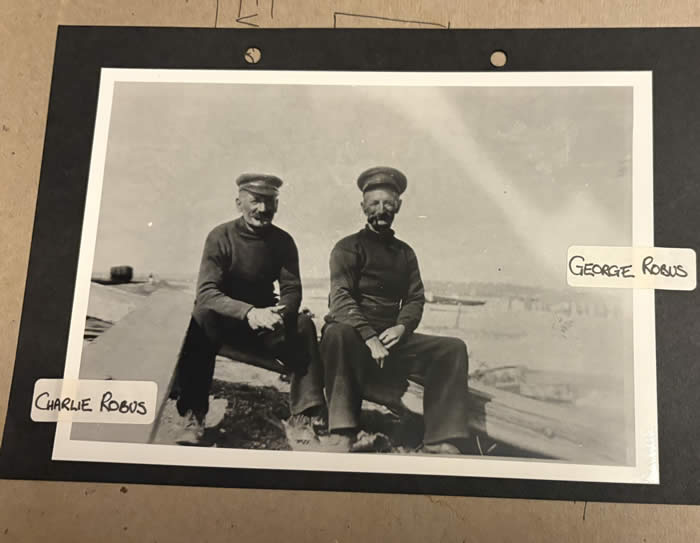
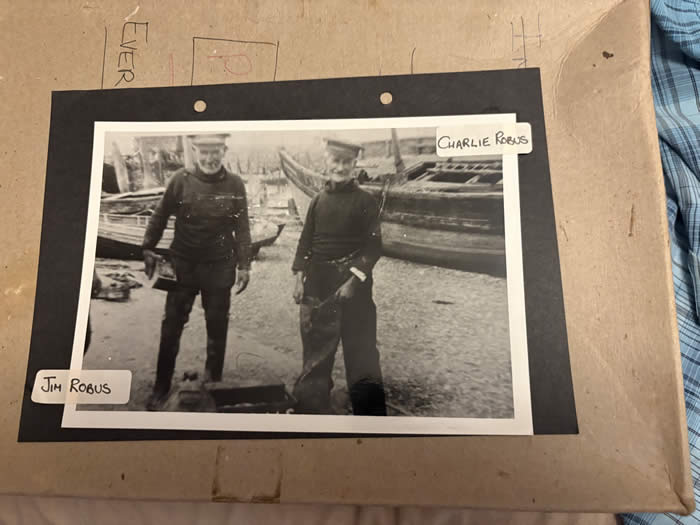
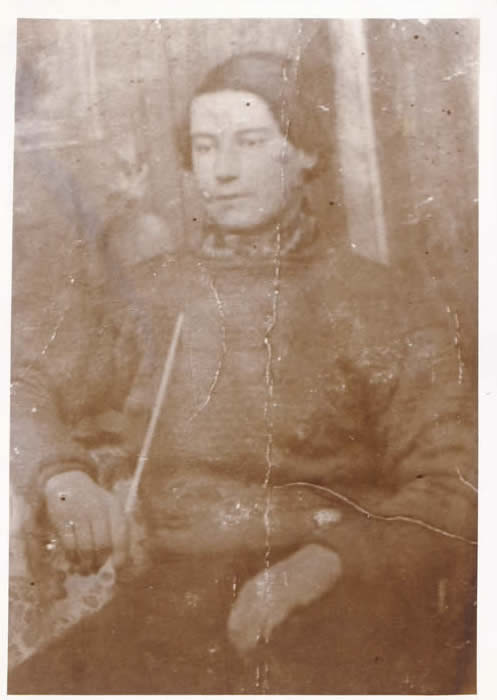
my great Granddad edward John Robus Born 1845
He was also so a Life Boat Man
but the boat he was on turned over in the storm
all the crew stayed with the with the boat, he he though he could swim
to the shore, is body was washed up on the beach next morning
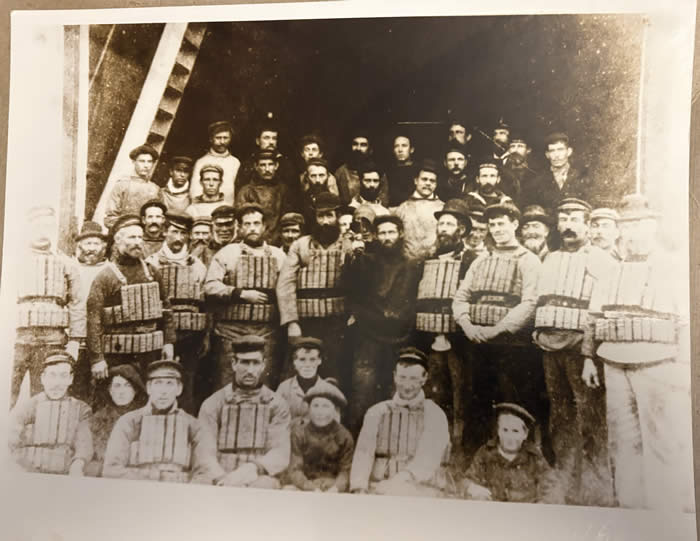
my Granddad is third from the left in the middle row
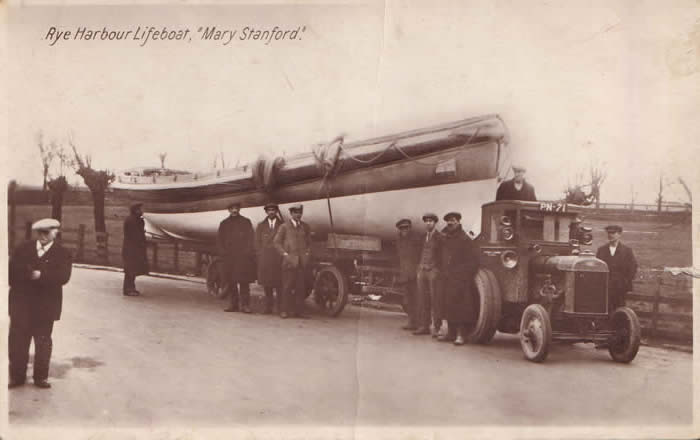
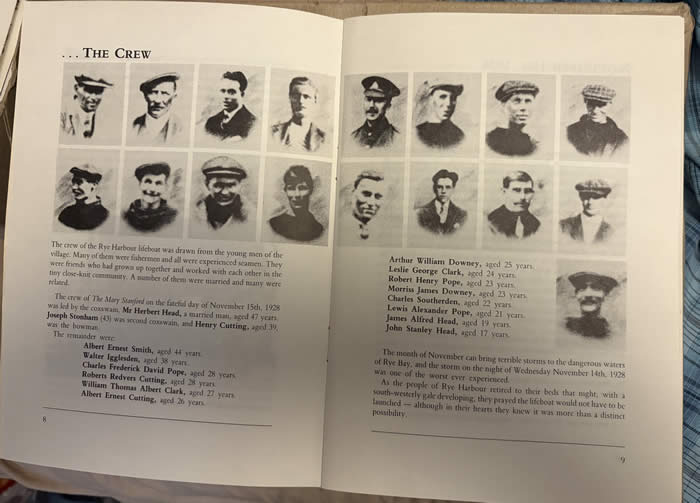
This is a Tribute
to all the Brave men, who never came back